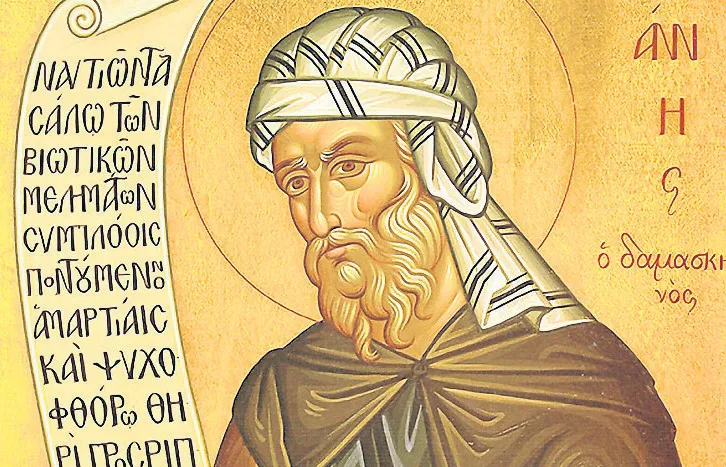The last 20 years or so have thrust to the fore of evangelical consciousness our great need to share the gospel with Muslims.
But Christian concern about the salvation of those devoted to the teachings of Muhammad is nothing new. One ancient vista from which to see the way that Christians responded to Islam during the very earliest period of Muslim expansion in the seventh and eighth centuries are the writings of the theologian John of Damascus (c.655/675 – c.749). John had clearly taken the time to understand Islamic views and thinking, and was quite familiar with the Qur’an in Arabic, though his language about Islam could at times be somewhat intemperate.
A biographical sketch
John is often described as the last of the so-called Church Fathers of the ancient church. An Arab by ethnicity, his grandfather had played a key role in the surrender of Damascus in 635 to the Muslim army of Khalid ibn al-Walid, a great early Muslim general. The Muslim rulers of Syria were tolerant of the presence of Christians and John’s grandfather became a key administrator in the Muslim government of the region. John’s father, Ibn Mansur, was known as an extremely devout Christian, but also one of the most trusted officials in the Muslim regime.








